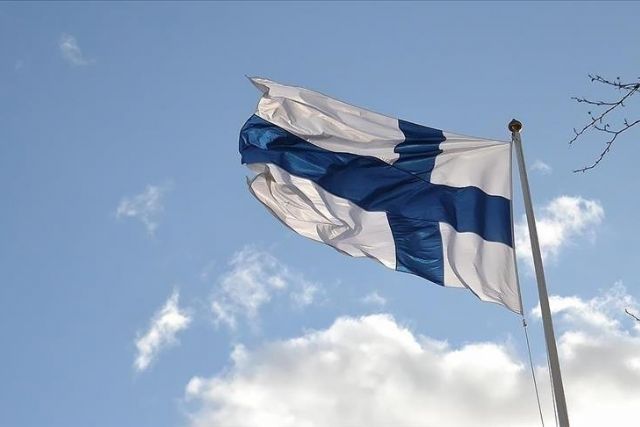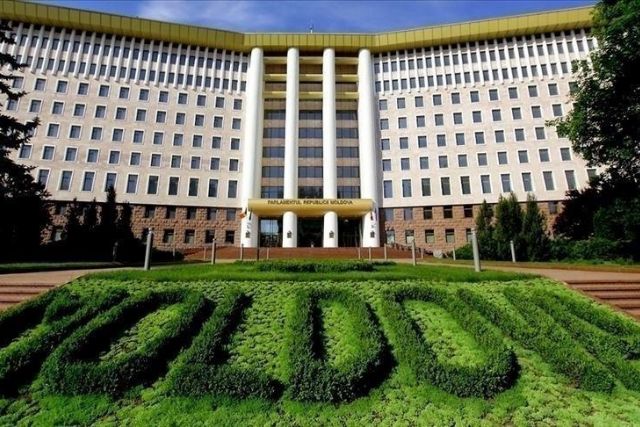ANALYSIS - Where is Great Britain in the 'Great Game'?
UK left Afghanistan, where it had planned long-term engagements for more than 20 years, after unilateral decision by US

Greater London
The author is a MEng. at University of Southampton
LONDON
While some may argue that the UK was looking for new opportunities in Afghanistan, others may argue that it followed an "ineffective" and "passive" policy.
Where is the UK now in the "Great Game" that it started in Afghanistan centuries ago?
Afghanistan has become an important region of political history over the past few centuries. Afghanistan, one of the centers of competition of global politics, has become a part of the Great Game.
In the 19th century, Afghanistan's geostrategic importance stemmed from Russia's effort to land in warm waters and Britain's duty to protect India, its richest colony. The fact that it was a buffer zone between the Western and Eastern blocs in the 20th century brought Afghanistan to an important point in international relations. In the 21st century, Afghanistan's geopolitical importance has increased as it is the gateway for the transportation of Central Asian oil and natural gas to the world markets and its geostrategic location between Iran, India, China, and Russia is seen as a future "threat" by the US.
Although the strategic analyses regarding Afghanistan as the key to Central Asia dates back to the late 19th century, the British also believed earlier that it was necessary to hold on to Afghanistan in order to protect the pearl of their empire, India. To achieve this goal, they had to seize Afghanistan. Political, military, and economic conflicts between Russia and England in the 19th century is called the Great Game [1].
The first act of this game, which has been going on for two centuries, started when the British got worried about Russia advancing in Central Asia. Great Britain, which will take action to seize the oil resources in Russia's sovereignty and weaken Russia, launched this strategy, which is now called the Great Game, 200 years ago. In 1838, Lord Auckland's manifesto, called the "Simla Manifesto," argued that a pro-British government in Afghanistan was essential for the welfare of the empire.
According to some historians, the Great Game ended with the Pamir Boundary Commission protocols signed Sept. 10, 1895, when the border between Afghanistan and the Russian Empire was defined [2]. Others claim that it concluded with the signing of the Anglo-Russian Convention on Aug. 31, 1907 [3].
Since then, there have been many issues that we can see as part of the Great Game. Afghanistan, previously under the control of Britain, came under Russian influence starting 1918, when it gained its independence, and it was officially occupied by the Russians in 1979. A joint front of the Western and Islamic Groups was established, but after a nine-year struggle, it was cleared of Russians. Afghanistan was occupied by the US on Sept. 11, 2001 with the allegation that the terrorist attacks against the Twin Towers and Pentagon in the US were organized by Osama Bin Laden and the al-Qaeda terrorist organization based in this country. With the operation launched by the US in Afghanistan on Oct. 7, 2001, the Taliban withdrew from Afghanistan in a short time.
The US, which sat down with the Taliban in February 2020, decided to withdraw from Afghanistan until Sept. 11, 2021, with an interesting historical coincidence. And the Taliban took control of Afghanistan in a short time. In this context, the global competition and conflict in Afghanistan never ended, as well as the Great Game.
So where is Great Britain now in the new scene of the ‘Great Game'?
In the first stage, the UK announced that it would not recognize the Taliban administration. However, British Foreign Secretary Dominic Raab's statement left the door open. He said the UK needs to face the "new reality" in Afghanistan and work with other nations to exercise a "moderating influence" on the Taliban. He added that over 5,000 UK nationals were among more than 17,000 people evacuated by the UK from Afghanistan.
About a month after these statements, on Oct. 5, 2021, British officials made diplomatic contact with the Taliban administration for the first time. It was announced that the special envoy of British Prime Minister Boris Johnson, who left for Afghanistan, met with Taliban leaders including the Taliban administrations's acting Deputy Prime Minister Mullah Abdul Ghani Baradar and Abdul Salam Hanafi. They discussed how Britain could help Afghanistan “address the humanitarian crisis, the importance of preventing the country from becoming an incubator for terrorism, and the need for continued safe passage for those who want to leave the country," the Foreign Office said.
The Taliban said London "must take positive steps regarding relations and cooperation, and begin a new chapter of constructive relations."
Two different views emerged regarding the UK's Afghanistan policy which seems to be uncertain.
First, the UK became a part of its ally's desires in Afghanistan, where it went under the direction of the US. The key strategic choice was made instinctively in 2001, the day after Sept. 11, when Tony Blair lined up with George Bush – shoulder to shoulder – to cooperate in the removal of the Taliban government of Afghanistan that had hosted al-Qaeda. However, its ally, the US, chose to withdraw quickly from Afghanistan on its own decision. This marks the end of Britain's long-term engagements in Afghanistan. The UK has been heavily engaged in and with Afghanistan for two decades. It has contributed funding for both military and development aims, employed diplomacy, and tragically lost hundreds of troops in active combat. According to Official Development Assistance (ODA) data published by OECD, since 2001, the UK provided $5 billion in ODA to Afghanistan, in a number of areas, a number of crucial areas, including security, governance, infrastructure, education, economic stability, growth, jobs, and so on. Despite these efforts, the challenges in Afghanistan did not decline, on the contrary, they increased. For instance, former Prime Minister Theresa May asked: “Where is ‘global Britain' on the streets of Kabul?” and rued the repercussions of Britain depending “on a unilateral decision taken by the US.”
Second, in fact, Great Britain is going through a period when it changes not only in Afghanistan but also in the important dynamics of its foreign policy. On this issue, Dr. Altay Atli argues that “Global Britain” envisions a Britain that is less dependent on the US and Europe and more interacting with different parts of the world. However, it is not easy to put a structure that has weakened in both fundamental axes on a new multilateral foundation in a rapidly changing world; this takes time and creates uncertainty, as in Afghanistan. In this context, the UK is looking for new kinds of opportunities in the global policies. In the panel held by Chatham House in May 11, 2021, one of the important think tanks of the UK, it was emphasized that cooperation opportunities with Afghanistan should be sought.
Atli also argues that London, as a matter of fact, brought many Afghans to the UK, with whom they cooperated in the region and helped them. Some 12,000 Afghans were brought in at the first stage, and the UK is to take in 20,000 Afghan refugees over the coming years, the government has announced. "We owe a debt of gratitude to all those who have worked with us to make Afghanistan a better place over the past 20 years. Many of them, especially women, now urgently need our help," Prime Minister Johnson said in a Home Office statement.
Atli notes that in the UK, a refugee's resettlement costs are paid to local authorities by central government. Local authorities are currently entitled to £20,520 ($27,467) per refugee, staggered over five years with £8,520 paid up-front for the first year. On the other hand, updated Home Office asylum policy guidance issued in early October does not recommend that all Afghan asylum seekers be granted protection in the UK. It does identify several groups of Afghans likely to be at risk of persecution by the Taliban. The categories listed are similar to those potentially eligible under the UK's evacuation, relocation, and resettlement schemes.
According to many British thinkers and scholars, Afghanistan is yet at a great, critical juncture, as the prospects for a political settlement with the Taliban has started to gain momentum. The country is facing a number of threats. Threats such as drug trafficking, the criminal economy, extremism, Daesh/ISIS, the coronavirus pandemic, the internal displacement, and the possible mass migration are also posed to other EU countries and the UK, along with a number of other socioeconomic challenges, which require vast efforts by the Afghans themselves, as well as the joint work with the co-operation with other friendly countries in the region and beyond.
The UK, which left the EU, reviewed its relations with the US, and redesigned its position in the world with the concept of "Global Britain" on this scale for the first time after World War II. The UK's approach to Afghanistan and the Middle East in the long term and its policies will be determined. How the UK will shape its policies will be of great importance for the region and for the whole world.
* Opinions expressed in this article are the author's own and do not necessarily reflect the editorial policy of Anadolu Agency.
[1] The term "Great Game" was coined by British diplomat Arthur Conolly in 1840 but it is was introduced into mainstream by the British novelist Rudyard Kipling in his novel Kim (1901). It was first used academically by Professor H.W.C. Davis in a presentation titled The Great Game in Asia (1800–1844) on Nov. 10, 1926. Morgan, Gerald (1973), "Myth and Reality in the Great Game," Asian Affairs, 4 (1): 55–65.
[2] William C. Rowe (2010). "Chapter 4: The Wakhan Corridor - The endgame of The Great Game." In Alexander C. Diener; Joshua Hagen (eds.). Borderlines and Borderlands: Political Oddities at the Edge of the Nation-state. Rowman & Littlefield. p. 64. Gebb, Michael (1983). "Review: Anglo-Russian Rivalry in Central Asia, 1810–1895." UCLA Historical Journal. 4: 130–132.
[3] Dean, Riaz (2019). Mapping The Great Game: Explorers, Spies & Maps in Nineteenth-century Asia. Oxford: Casemate (UK). pp. 270–71.





